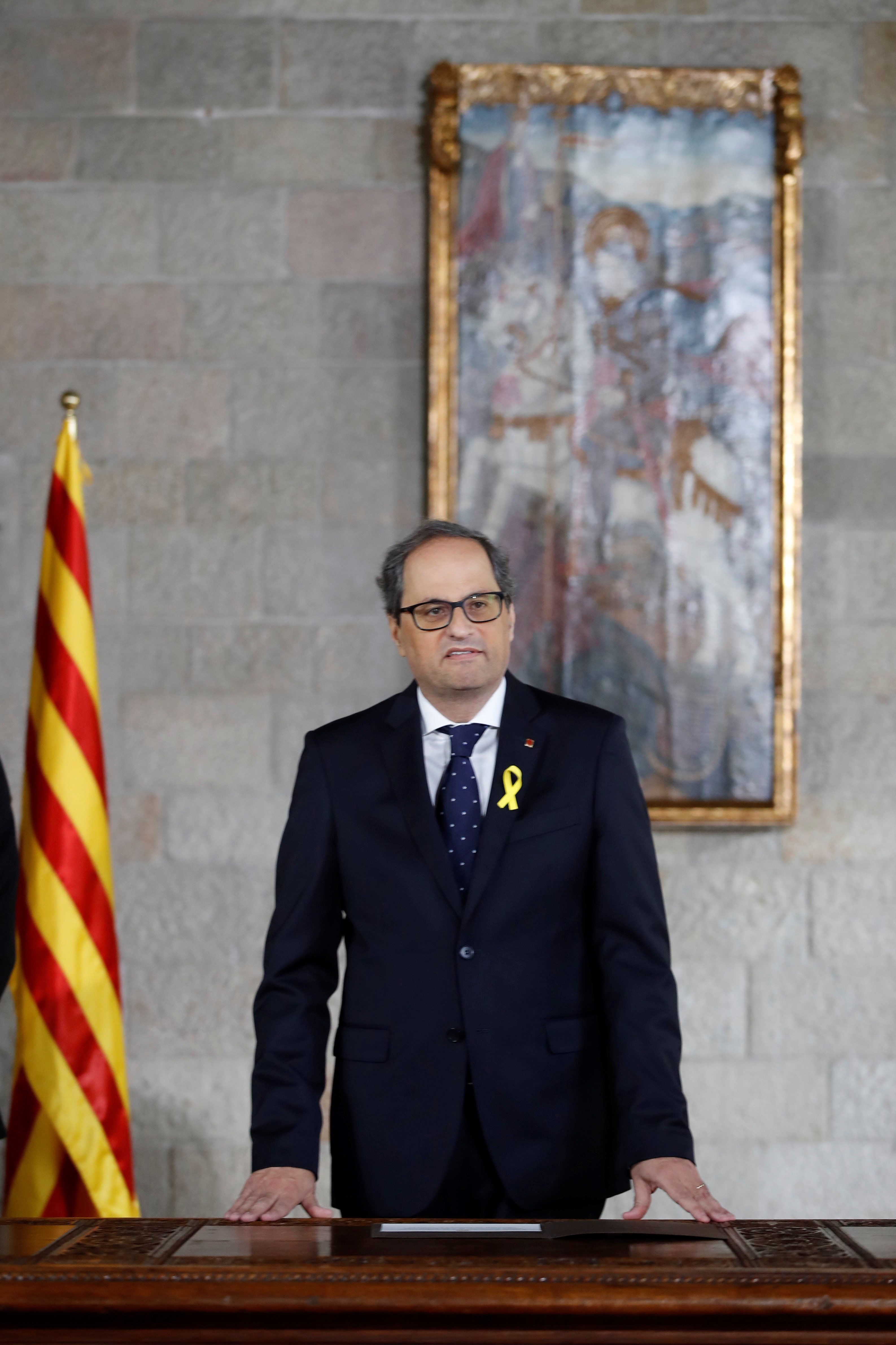Given the repeated refusals by the Spanish government to formally publish the nominations of the new ministers, to allow his government to take office, president Quim Torra has changed four of his nominations. The changes are: Elsa Artadi moves to the Presidency department, being replaced at Business by Àngels Chacon, Health goes to secretary of the Parliament's Bureau, Alba Vergés, whilst Damià Calvet comes in for Territory and Laura Borràs, Culture. The changes bring three more women into the government, for a total of six, whilst the president, vice-president and six other ministers are men. On the way out are ministers Jordi Turull and Josep Rull, in pretrial detention for almost 100 days for their roles in the independence process, and Toni Comín and Lluís Puig, in exile.
Artadi, JxCat's strongwoman in the government, had been down since the beginning for the presidency department should Turull not be able to take office or be suspended by the Supreme Court. Her move, however, meant someone had to be found to take on the business department. For this role a new name came up, Àngels Chacón, previously director general of the industry department and first deputy mayor of the town of Igualada for PDeCAT.
Also joining the government are the fourth secretary of the Parliament's Bureau, Alba Vergès, to head the health department, whilst Damià Calvet and Laura Borràs had been named commissioners??? of the territory and culture departments, respectively, with the intention of them moving up to minister if necessary.
The new government, therefore, is the following:
- Pere Aragonès i Garcia – economy minister and vice-president
- Elsa Artadi i Vila – presidency minister and spokesperson
- Ernest Maragall i Mira – foreign action, institutional relations and transparency minister
- Miquel Buch i Moya – interior minister
- Josep Bargalló i Valls – education minister
- Alba Vergès i Bosch – health minister
- Damià Calvet i Valera – territory and sustainability minister
- Laura Borràs i Castanyer – culture minister
- Ester Capella i Farré – justice minister
- Chakir El Homrani Lesfar – work, social affairs and families minister
- Àngels Chacon i Feixas – business and skills minister
- Jordi Puigneró i Ferrer – digital policy and public administration minister
- Teresa Jordà i Roura – agriculture, livestock, fishing and food minister
The president signed the appointments decree, including the four restored ministers, on Saturday 19th May. However, two days later, the Catalan government's official gazette, still under Spanish government control thanks to article 155 of the Constitution, published the structure decree for the new executive, but not the names of the ministers.
The argument used was that they were studying the viability of publishing a decree nominating as ministers two people in prison and two in exile. Two days later, the Catalan government pushed again by letter, calling for the decree to be published within 24 hours.
Given the central government's insistence on not publishing the text, Torra asked for a report on the question from the Legal Advisory Commission. That report, released last Thursday, confirmed the Spanish government's obligation to publish the appointments. With the ruling, the president claimed interim measures from the Supreme Court of Justice of Catalonia on Friday. This Monday, the relevant chamber in the court got out of the situation saying it had no powers in the matter.
This Tuesday, the Spanish government had sent a letter saying it has no intention of publishing the decree. From that point, all the paths open to the government to try to move ahead with the executive as planned were long-term measures, like presenting complaints to the courts. That said, government sources suggest that presenting an appeal and changing the nominations are not mutually exclusive, and both could go ahead.
Sources close to Torra had said that the president wouldn't change any of the four ministers in prison or exile if they were not in agreement with it, given the impossibility of swearing in the government whilst the state remains in control of the gazette.

